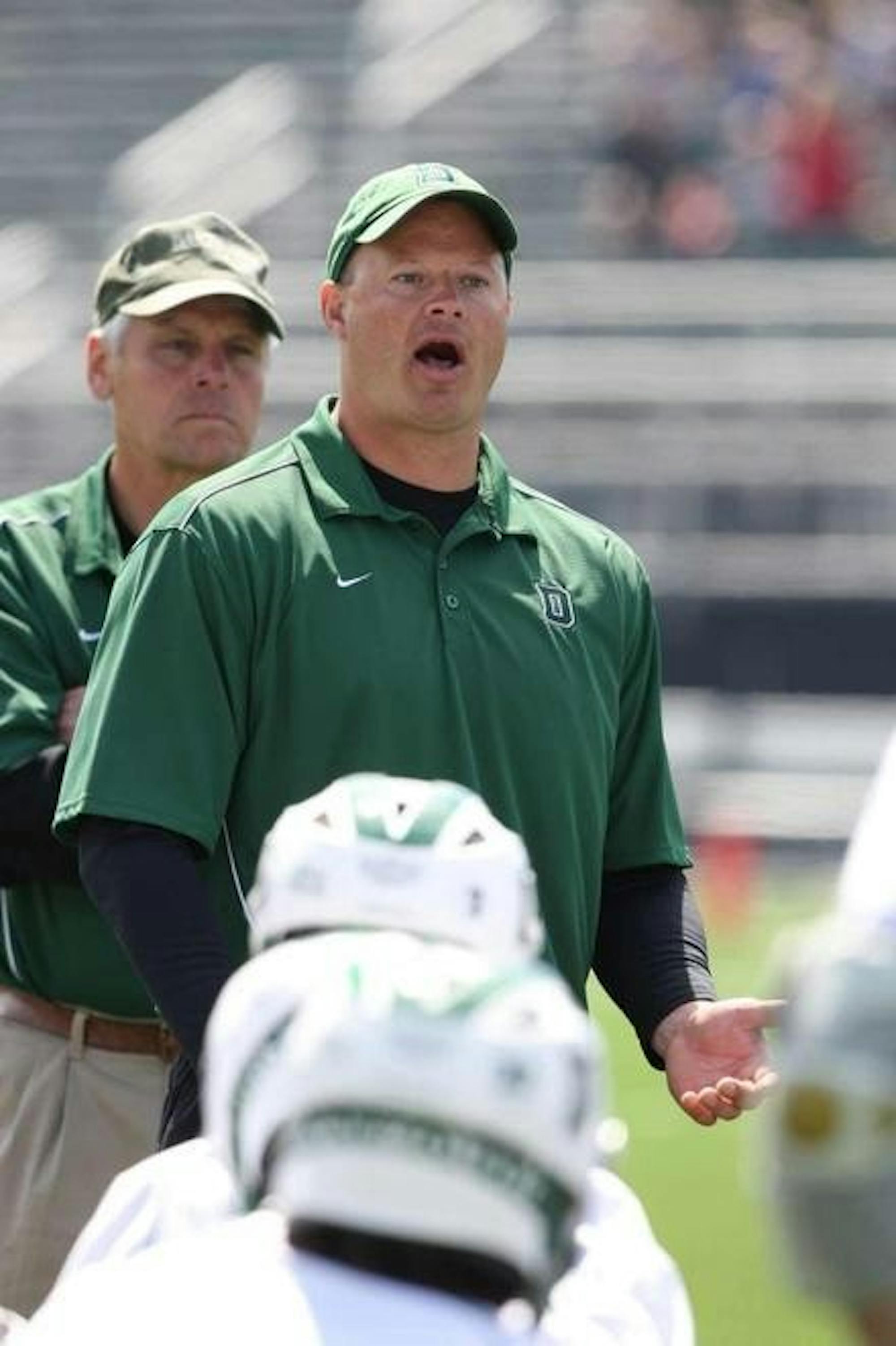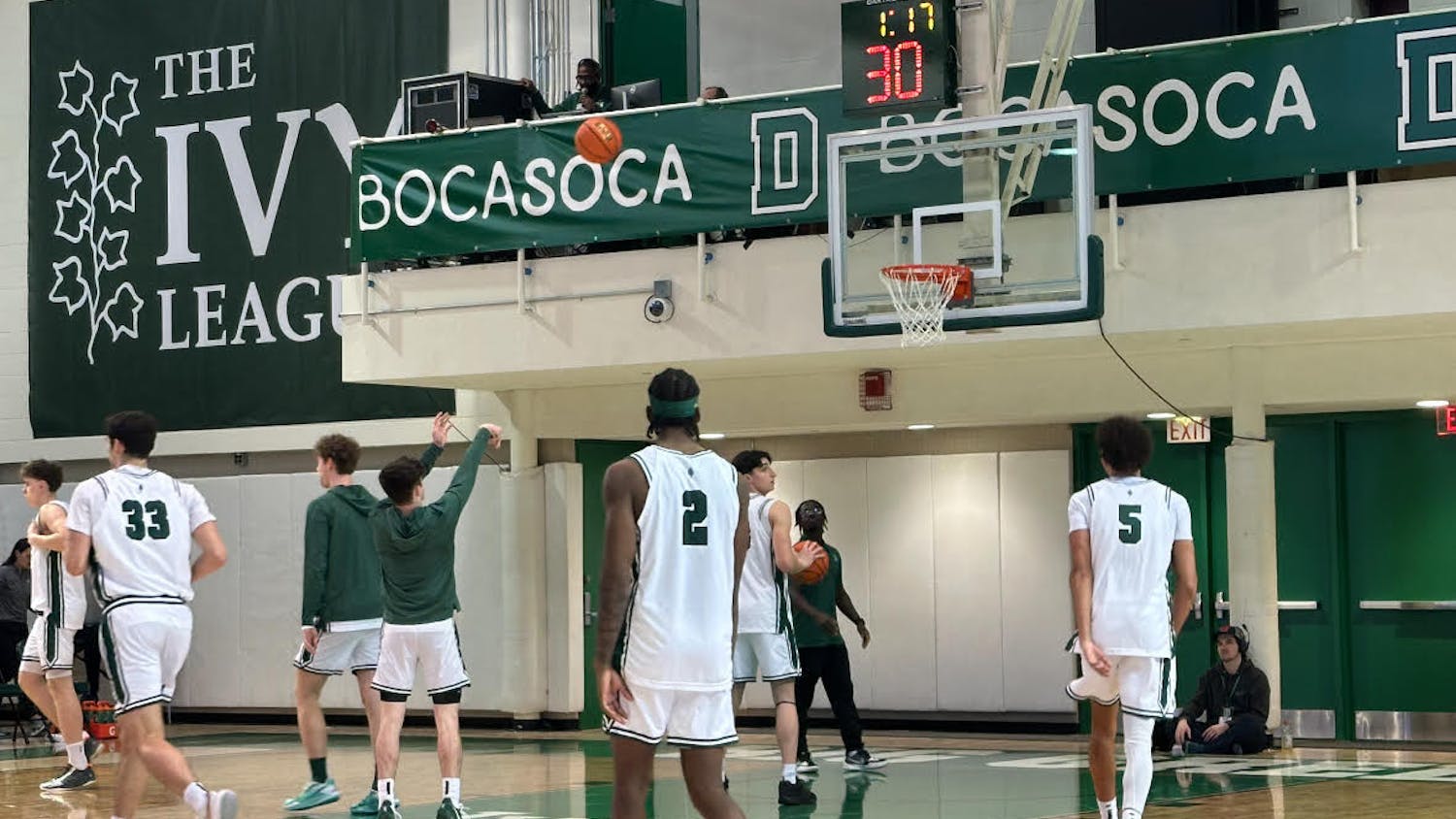Those experiences have left me with thousands of memories of Big Green athletics, but few stick out as much as something former athletic director Josie Harper once told me in an interview: that Dartmouth's recent athletic facilities upgrades would help the College compete for, and win, some of the top recruits in the Ivy League ("Harper forsees breakout year for Dartmouth athletics," May 23, 2008).
Certainly those facility upgrades have played a role in many athletes decision to come to the College, and they were long overdue, but if Dartmouth is serious about its varsity sports, the athletic department needs to do more to convince recruits that the Big Green is serious about winning.
Facility upgrades are one thing, but if the athletic department wants to show prospective students that Dartmouth wants to win, it's time to replace underperforming coaches.
Dartmouth, as a whole, is very competitive in the Ivy League. The average Dartmouth head coach has been at the College just short of 10 years. That doesn't include the ski coaches, for whom DartmouthSports.com does not have the start dates. But in that 10 years, the Big Green has taken home, by my count, 30 Ivy League titles. In the sports in which Dartmouth competes in the Ivy League, Princeton has won, by my count, 106 titles, followed by Harvard with 65, Cornell with 49, Penn with 32, Brown with 31, Yale with 29, and Columbia with 14. We're technically in fifth since 1999, but pretty close to third.
What troubles me are the real underperformers. We may never be able to dominate track and field the way Cornell does, or field hockey the way Princeton did this decade, but the fact that Dartmouth hasn't had a winning season in the Ivy League in men's basketball since 1999 should be troubling. So should the football team's 13-year title drought, and the fact that the swim team has not won an Ivy League meet in the time any current undergraduates have been at the College.
Harper told me in that interview that Harvard, Yale and Princeton were Dartmouth's three biggest competitors for the top recruits. Dartmouth may never have the name recognition of those schools, but if the College is going to attract the best athletes in the Ivy League, the first step is a willingness to cut the head off of its stagnant or declining programs.
In my time working for The Dartmouth, I've heard countless columnists, editors and reporters lament the lack of school spirit at Dartmouth sporting events. Sports editor Ivan Zlatar '10 lamented the apathy of Dartmouth students toward the Big Green in a recent column ("The Power Rankings," Nov. 16). I don't think Dartmouth students are apathetic. I think they're fickle.
The stands are empty at Dartmouth sporting events because students want to support a winner. Anyone who saw the crowd when the baseball team played for the Ivy title this spring, or when the men's basketball team took on Cornell this winter in a game with serious standings implications, knows this. When Alex Barnett '09 threw down a two-handed dunk in the second half, it was as if the dream Harper expressed to me last year that Leede "could be a junior Cameron [Indoor Stadium at Duke University] because of the home court advantage we would have if we could fill that with screaming students," had come true.
Revitalizing the Big Green varsity program is a matter of "If you build it, they will come." The administration has taken the first step of building stellar facilities, and now it must take the next step to build stellar teams. College President Jim Yong Kim often touts his evidence-based approach, and the evidence is here: several Dartmouth sports teams are struggling, and many of those have shown few, if any, signs of improvement under their current coaching staffs. It's time to change things up in these struggling regimes. Only then will we see the recruits, the fans and the titles all come.




